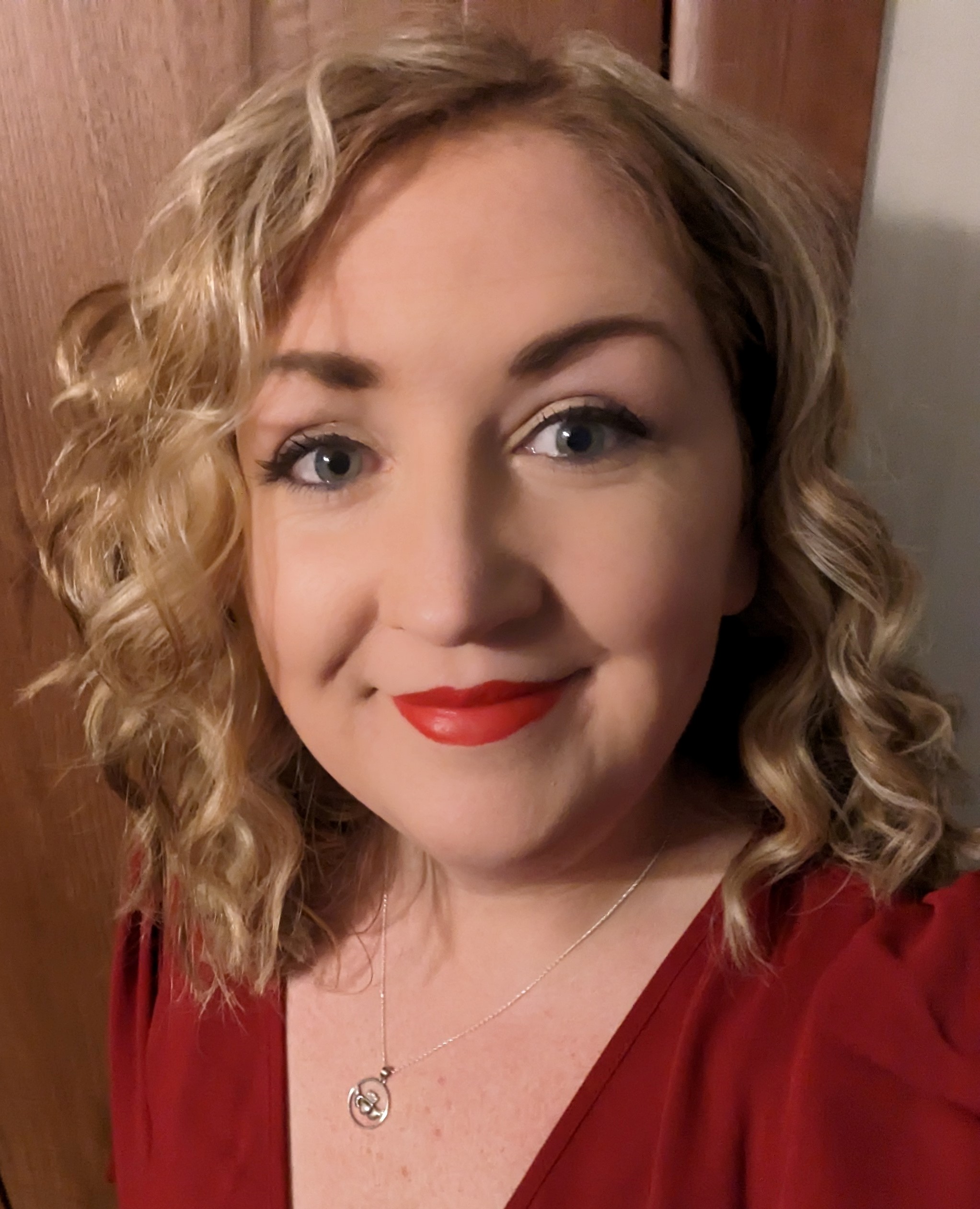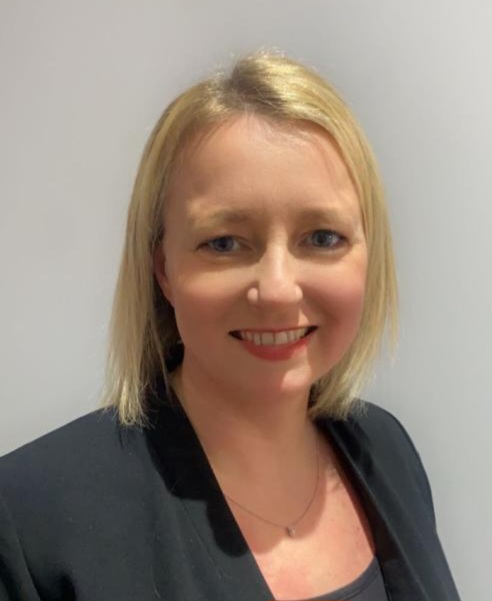We talk to Sarah Robinson (left), business accountant for Planned Care at Warrington and Halton Teaching Hospitals NHS Foundation Trust, and her manager, Sarah Clark (right), about how her CIPFA Level 7 Accountancy Professional Apprenticeship has set her up for a fulfilling career in the public sector.


Sarah’s story
Sarah Robinson is a business accountant for Planned Care at Warrington and Halton Teaching Hospitals NHS Trust, which she started at the end of February 2023.
In her current role Sarah works closely with the operational teams for the Digestive Diseases, Surgical Specialties and Women’s & Children’s specialties within the Trust. With her team she supports the Managers, Ward Managers and Budget Holders with their budget statements. Sarah assists the Budget Holders with any queries and supports Business Cases by providing financial information. “Every day is different, with different challenges. I love the varied requests that I can get involved in.”
Sarah began her CIPFA journey in September 2018 as a CIPFA apprentice at St Helens & Knowsley Teaching Hospitals NHS Trust, having taken the decision to switch from her career in the teaching profession. In August 2021, shortly before completing her CIPFA Level 7 Accountancy Apprenticeship, Sarah was successful in obtaining a permanent role in the Trust’s Commercial Services team where she was responsible for supporting the IT, Payroll and Lead Employer functions (a position she held at the time this interview took place).
Motivation
The public sector ethos of the NHS and the opportunity to make a difference were key factors in Sarah’s decision to become an accountant in the health service (like her mother before her). “I like the idea of helping people,” she explains. “It's always been something I've been very passionate about. And I feel that working in the NHS enables us to do things that help a lot of people indirectly. For example, we may be involved with developing business cases that are going to introduce something new to help patients in the hospital and make a difference – that’s very rewarding.”
She continues: “St Helens is my local trust, so it was really good to feel like you’re contributing to the local community as well.”
New pathways
During her training, Sarah’s apprenticeship manager was Sarah Clark, who is now associate director of finance at the Northern Care Alliance NHS Foundation Trust. She explains that the CIPFA Level 7 Accountancy Professional Apprenticeship route presented the trust’s finance team with an opportunity to bring new people into finance roles. “While the NHS finance graduate management trainee scheme is an established path into the profession, we wanted to tap into other talent out there that might not have had the opportunity to go through that grad scheme route – people who don’t necessarily have that finance-related degree behind them,” she says. “It was part of an overall strategy focused on how we grow our workforce in new, different ways.” The benefits include having people from different backgrounds and experiences of life who can bring fresh perspectives into the organisations. “They can ask questions and challenge assumptions,” Sarah Clark says, “which can help the team look at what they’re doing and how they could possibly do it in a different, more efficient way.”
Challenges
Although having a non-finance background, Sarah says she found the experience of the apprenticeship positive and stimulating. “Finance was completely new to me, so I enjoyed learning all the new skills in college that I was going to need for my future career. Also, it was really inspiring working with everyone on the course and at the trust, because they were so enthusiastic, supportive and very helpful.” She found many in her CIPFA apprenticeship cohort were also new to finance and, although daunting at the beginning, “we all supported each other, while the tutors were very approachable and supportive as well. The group set up a WhatsApp group on the first day, which was so useful, enabling everyone to have direct access for support and practical help. That peer group support network and camaraderie continued throughout the course – and hopefully we can maintain those connections as our careers develop.”
While the course was initially face-to-face, the COVID pandemic in March 2020 meant the classes shifted online for the remainder of the programme. Nonetheless, the on-the-job training at the trust reflected what she was learning in her coursework, complementing her studies and bringing them to life. “It made it more relevant. The training at St Helens was very good – it helped by providing experience working through all the different areas of finance within the organisation. I started in the Procurement Team, moved to the Accounts Payable and Income Teams, and then had an extended placement in Management Accounts during the pandemic. That’s the area in which I decided I wanted to work.” She believes this rounded experience gave her a deeper insight and broader understanding of how the organisation operated, as well as knowledge of different teams’ processes – plus the opportunity to develop useful contacts within those teams.
Planning
Ensuring that the work placement experiences tied in with the qualifications was a vitally important part of the programme planning, Sarah Clark explains. “It is important to have a development plan in place – to think clearly about what the apprentice needs. It’s certainly not about ‘filling the gaps’ in your organisation. This is about training somebody to be an accountant of the future. “We had a responsibility to provide our young apprentice with the experiences she needed to complement her studies and help her with her qualification exams. Structuring the programme for the three-year apprenticeship was therefore critical to make sure that she had the opportunity for valuable learning at every step of her journey. We felt that by getting this right, it would provide a really good grounding for her career, so when she came out of the programme she would not only have picked up the technical skills and passed the exams, but also have a solid understanding of how an organisation works and the experiences to see where her career could take her.”
Sarah Robinson acknowledges the value of this approach. “The CIPFA apprenticeship taught me so many skills. And as well as the technical and organisational skills that have helped me in work, it has also benefited me personally – I’ve become a much more confident person and a lot more resilient too. By introducing you into situations that may not initially be in your comfort zone – for example, in board meetings or meetings with senior managers and key budget holders – it stretches you, and makes you appreciate what you are capable of. It also teaches you perseverance – particularly when starting new placements and adapting again in terms of new learning and processes.”
Post-qualification
Towards the end of Sarah’s apprenticeship, a vacancy arose in the trust’s Finance Department. “We were really keen to keep her within the organisation, and fortunately we were able to do so,” Sarah Clark says. “Alongside her skills and training, Sarah’s brought enthusiasm and a willingness to go beyond the day job. She’s now heavily involved in the Northwest Finance Skills Development network, for instance, which is around upskilling other people – she’s sharing the learning and development she’s had from us with others who haven’t had that financial background. She’s grown in her role over the 18 months since she qualified – she’s definitely an asset to any finance team. ”As a former apprentice, Sarah Robinson is a firm advocate for her route into public sector finance: “I would definitely recommend the CIPFA apprenticeship to people that are thinking of studying accountancy, particularly if they’re keen to work in the public sector. It is a commitment, and it can be challenging juggling the studying with your work and home life, but it’s definitely worth it – after three years you have an amazing qualification under your belt, and great career prospects.”
While she looks ahead to starting her next role in the NHS, Sarah’s career aspirations are already clear: “I just want to enjoy what I’m doing and be good at it. Whether that is as a Band 8 or a director of finance, I’d rather have job satisfaction than simply aim for the highest position possible. There are so many different directions you can follow in the NHS, it’s just exciting to think about the possibilities that are out there.”
Contact us
CIPFA has two Level 7 Accountancy Professional Apprenticeship intakes a year, one starting in the spring and one in the autumn. If you have any queries, including how to go about recruiting an apprentice, contact the apprenticeship team: apprenticeships@cipfa.org
